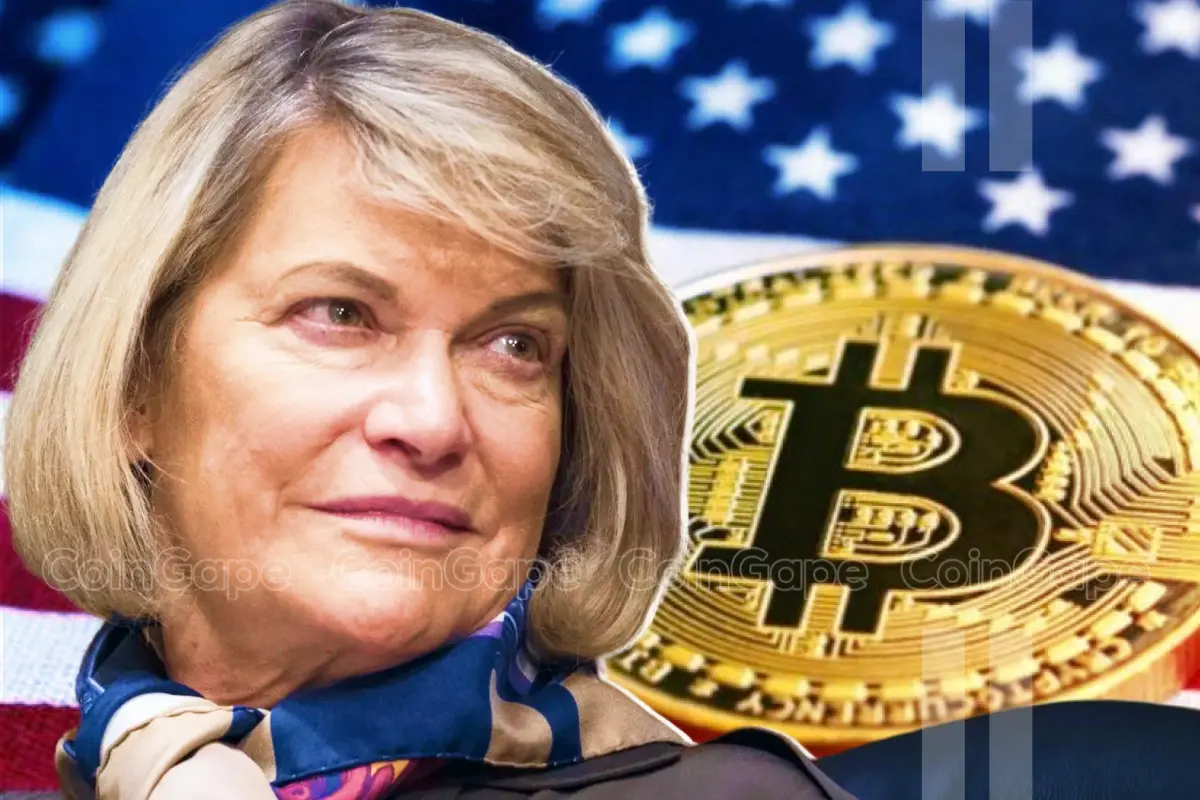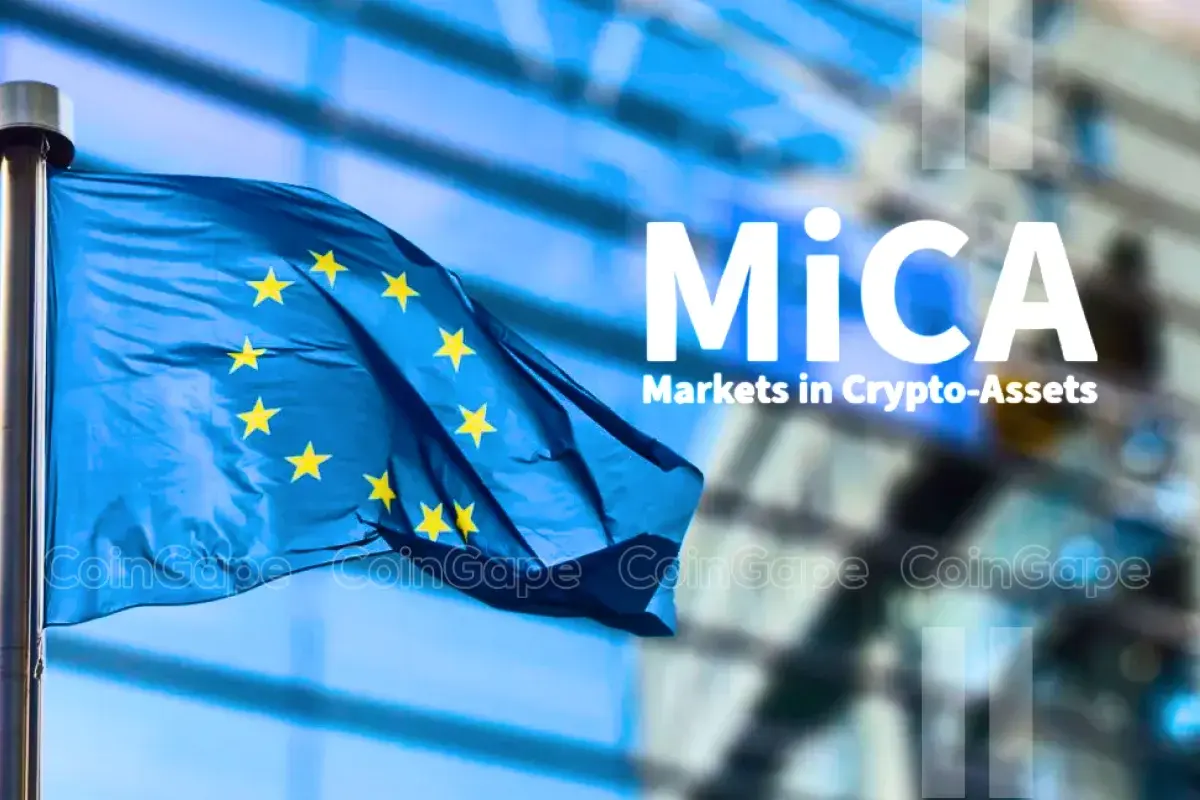Regulation
Bitpanda becomes first European firm to secure Dubai VARA in-principle approval


- Bitpanda has secured in-principle approval from Dubai VARA.
- Dubai is emerging as a global crypto hub with a supportive regulatory environment.
- Bitpanda plans to establish a regional headquarters in Dubai to expand globally.
Bitpanda, a prominent European digital asset platform, has achieved a significant milestone by securing in-principle approval from the Dubai Virtual Asset Regulatory Authority (VARA).
This approval positions the Austrian company as the first European crypto firm to gain entry into Dubai’s burgeoning digital asset market.
Dubai emerging as a crypto hub
Dubai has emerged as a global cryptocurrency and blockchain innovation hub, attracting leading firms worldwide. With its progressive regulatory framework, the United Arab Emirates (UAE) offers a secure and innovation-friendly environment for crypto businesses and investors.
Bitpanda’s approval underlines its adherence to the region’s stringent regulatory requirements, reflecting the firm’s commitment to compliance and transparency.
Following the in-principle approval, Dubai will serve as Bitpanda’s gateway to global markets, and plans are already underway to establish a fully operational regional headquarters in the city.
According to Eric Demuth, co-founder and CEO of Bitpanda, Dubai’s status as a crypto-friendly city and its vibrant ecosystem make it an ideal launchpad for the firm’s international ambitions.
“In Europe, we have built a reputation as the most trusted and regulated digital asset platform. Now, we are scaling this proven model globally, with Dubai and the UAE serving as our strategic launchpad for international expansion. The opportunities are immense, and we are uniquely positioned to seize them,” Demuth said.
Bitpanda still requires additional approval for full authorization
Despite receiving in-principle approval, Bitpanda must fulfil additional regulatory requirements to achieve full authorization to operate in the UAE.
Nevertheless, the company’s entry into Dubai signifies its commitment to playing a pivotal role in the region’s crypto ecosystem, contributing to the city’s reputation as a global leader in digital asset innovation.
With plans to collaborate with other financial entities in the UAE, Bitpanda is poised to solidify its presence in one of the world’s most promising crypto markets.
Regulation
South Korea Regulator Suspends Upbit Operations Over KYC Violations

In the latest development in the Upbit scrutiny, South Korea ordered the platform to suspend its business operations. Citing violations of Know-Your-Customer (KYC) rules and anti-money laundering laws, South Korea notified the exchange about the suspension. Upbit’s future services in the country remain in jeopardy as the exchange has received severe-than-expected sanctions.
Upbit To Suspend Business in South Korea
The South Korean Financial Intelligence Unit has warned Upbit crypto exchange over its alleged violations of the Specific Financial Transaction Information Act. Reportedly, this warning could affect Upbit’s future in South Korea, with a possible halt of services for up to six months. As per the notice, the crypto platform would be restricted from new customer-related activities while existing clients could continue their trade.
Notably, a disciplinary hearing is scheduled on January 21 over the exchange’s KYC violations. Upbit could submit its response by January 20. The FIU’s sanctions-level meeting is expected to evaluate Upbit’s regulatory compliance. During Upbit’s virtual asset service provider (VASP) license renewal program, South Korea discovered more than 500,000 cases related to KYC violations. As these cases include account approval without proper identification, they are considered as unauthorized customer verifications.
How Will Upbit’s KYC Violations Impact the Broader Crypto Industry?
The crypto market is keenly observing the developments within the Upbit case. As of now, the regulators haven’t decided the extent of sanctions, including the possible fines. The industry expects explanations from Upbit on January 21, which would lead to further decisions in the case. Usually, the authority could impose up to 100 million won ($68,592) for violations of customer verification regulations.
South Korea has been at the forefront of crypto regulations, driven by its vision of fostering market expansion and customer security. Its recent efforts highlight its commitment to tackling increasing illegal crypto practices in the country. Further developments in the case could significantly impact the global crypto regulatory landscape.
Disclaimer: The presented content may include the personal opinion of the author and is subject to market condition. Do your market research before investing in cryptocurrencies. The author or the publication does not hold any responsibility for your personal financial loss.
Regulation
Nasdaq Files 19b-4 for Canary Litecoin ETF Amid Approval Speculation

Nasdaq has submitted a 19b-4 form to the U.S. Securities and Exchange Commission (SEC) for the proposed Canary Litecoin ETF. This filing, made on behalf of Canary Capital, starts the official review process for the approval of a spot Litecoin exchange-traded fund (ETF).
The submission is a crucial step in the regulatory process and could pave the way for Litecoin to join Bitcoin and Ethereum as the next cryptocurrency with an approved ETF in the United States.
Nasdaq Files 19b-4 for Canary Litecoin ETF
The 19b-4 form was filed by Nasdaq on January 16 while Canary Capital had submitted an amended S-1 filing earlier in the week. These two filings thus address all the essential elements the SEC considers while evaluating the ETF proposal.
As stated in the submission, U.S. Bancorp Fund Services, LLC will perform the function of the fund administrator and U.S. Bank N.A will oversee the cash of the ETF. Coinbase Custody Trust Company LLC will act as the custodian of the Litecoin of the fund.
The 19b-4 filing is the first official step that exchange agencies take to receive the SEC’s stamp of approval on ETFs. This filing thus begins the formal 240-day period within which the SEC can either approve the application, reject it, or ask for more information.
Bloomberg Senior ETF Analyst Eric Balchunas termed the filing as a “positive signal” in a recent post in X, which indicates that Litecoin might be the next cryptocurrency to get the green signal for a spot ETF.
Litecoin Price Rallies as SEC Prepares for Change
The filing occurs at a time when the SEC is in the process of changing leadership under the new government under President-elect Donald Trump. Former SEC Commissioner Paul Atkins who has been an advocate for cryptocurrencies has been recommended for the position following Gensler’s exit. This shift in leadership can be an opportunity for a more positive approach to cryptocurrency ETFs, according to industry experts.
Balchunas noted the change of leadership and said that it is a “huge variable” in the approval of Litecoin and other ETFs. Canary Capital has been in the process of seeking approval of Litecoin ETF since October 2024 and in the process of addressing the regulatory issues in its filings.
When the news broke, the cryptocurrency market gave a positive reaction, especially to Litecoin, which surged more than 15% within 24 hours. On-chain analytics firm Santiment revealed that large investors with holdings of over 10,000 LTC scooped up an additional 250,000 LTC over the last week, thus fuelling market sentiment in favor of Litecoin.
Competition Among Spot Crypto ETFs Intensifies
As Litecoin is moving forward in the ETF race, other cryptocurrencies like Solana and XRP are not far behind in the race. Solana is currently leading in the race, with several companies, including VanEck, Grayscale, and Bitwise, having submitted 19b-4 forms for spot Solana ETFs as early as November 2024.
Grayscale’s Solana ETF is expected to get a preliminary nod from the SEC by January 23, while other Solana ETFs are set to have their filings due later this month.
The applications for Ripple’s XRP ETFs are also pending with WisdomTree, Bitwise, 21Shares, and Canary Capital among others. If approved, Solana and XRP ETFs are expected to lure investments of up to $14 billion in their first year of operation, according to the experts.
Disclaimer: The presented content may include the personal opinion of the author and is subject to market condition. Do your market research before investing in cryptocurrencies. The author or the publication does not hold any responsibility for your personal financial loss.
Regulation
Senator Cynthia Lummis Threatens Action Over Alleged FDIC Document Destruction

Senator Cynthia Lummis has issued a warning to the Federal Deposit Insurance Corporation (FDIC) regarding allegations of document destruction related to “Operation Choke Point 2.0” (OCP 2.0). Whistleblowers have accused the agency of withholding and destroying materials tied to the alleged anti-crypto campaign. This has intensified scrutiny over the Federal Deposit Insurance Corporation’s practices.
Senator Cynthia Lummis Demands FDIC Preserve Documents Tied To OCP 2.0
In a letter dated January 16, 2025, Senator Cynthia Lummis addressed FDIC Chair Marty Gruenberg, demanding immediate action to preserve all documents linked to OCP 2.0. The initiative allegedly involved a multi-agency effort to limit crypto businesses’ access to banking services.
The pro-crypto Lummis warned that any destruction of these documents or retaliation against whistleblowers could result in criminal referrals to the Department of Justice. She emphasized that obstructing Senate oversight is illegal and unacceptable. The letter also referenced whistleblower claims that staff access to these materials is being closely monitored to prevent disclosure.
Addressing, Marty Gruenberg, the FDIC Chair, pro-crypto Senator Cynthia Lummis added,
“This is illegal and unacceptable. You are directed to ensure your staff cease and desist destruction of all materials and end all retaliatory actions immediately.”
Moreover, this warning comes amid reports that Donald Trump’s advisory team, including Elon Musk, is considering eliminating the FDIC as part of a banking sector overhaul. The proposed changes include merging the FDIC, OCC, and Federal Reserve’s nonmonetary functions to streamline regulation. Advisors have also floated the idea of transferring deposit insurance responsibilities to the Treasury Department.
Whistleblower Allegations and FDIC Compliance Issues
Whistleblowers allege that FDIC management has taken steps to prevent the release of critical information tied to OCP 2.0. These efforts reportedly include threats of legal action against staff who speak out and deliberate attempts to destroy key documents.
The controversy extends to the wind-down of Signature Bank and Silvergate Bank, two institutions with strong ties to the crypto industry. These closures have been central to ongoing investigations into the broader crackdown on crypto businesses.
Notably, the pro-crypto Senator Cynthia Lummis recently probed the U.S. Marshals over their proposed plans to sell seized Bitcoin. Lummis flagged concerns about the timing of the sale, citing its contradiction with President-elect Donald Trump’s Bitcoin Reserve agenda.
Scott Bessent Opposes CBDC Amid Crypto Debate
Meanwhile, Scott Bessent, President Donald Trump’s Treasury pick, has voiced opposition to the creation of a U.S. central bank digital currency (CBDC). In a recent Senate hearing, Bessent argued that the U.S. dollar already provides secure investment alternatives, making a CBDC unnecessary.
President @realDonaldTrump’s nominee for Treasury Secretary, Scott Bessent: “On CBDC’s, I see no reason for the U.S. to have a central bank digital currency.”
Agreed. Now let’s make sure it’s in law. pic.twitter.com/HaVD9Wjlkc
— Tom Emmer (@GOPMajorityWhip) January 16, 2025
Bessent’s stance aligns with Trump’s broader support for Bitcoin and skepticism of foreign CBDCs. He emphasized that Bitcoin mining safeguards against other nations’ adoption of centralized digital currencies. This reinforces Trump’s pro-crypto policies and highlights the administration’s preference for decentralized financial systems.
Nonetheless, most recently, Trump’s Treasury nominee Scott Bessent faced scrutiny from Senator Elizabeth Warren before his Senate Finance Committee confirmation hearing. Warren’s 31-page letter questions Bessent’s views on crypto regulation, including the potential authority of OFAC over stablecoins to combat risks like money laundering.
Disclaimer: The presented content may include the personal opinion of the author and is subject to market condition. Do your market research before investing in cryptocurrencies. The author or the publication does not hold any responsibility for your personal financial loss.
-

 Regulation22 hours ago
Regulation22 hours agoUS judges demand explanation from the SEC for its refusal to set clear crypto rules
-

 Regulation13 hours ago
Regulation13 hours agoActing SEC Chair Uyeda announces new crypto task force
-

 Regulation15 hours ago
Regulation15 hours agoTether’s market capitalisation slips as MiCA regulations kick in
-

 Ethereum8 hours ago
Ethereum8 hours agoETH breaks $3,900 as Bitcoin spikes past $103k
-

 Regulation11 hours ago
Regulation11 hours agoTurkey rolls out new crypto AML regulations
-

 Ethereum11 hours ago
Ethereum11 hours agoEthereum ETFs inflows surge as Bitcoin ETFs see major outflows
-

 Altcoin12 hours ago
Altcoin12 hours agoDogecoin Price Breaks Out Of Falling Wedge Formation, Is A 50% Jump Possible From Here?
-

 Market7 hours ago
Market7 hours agoCardano (ADA) Slips: A Healthy Correction or Bulls Losing Grip?





















✓ Share: